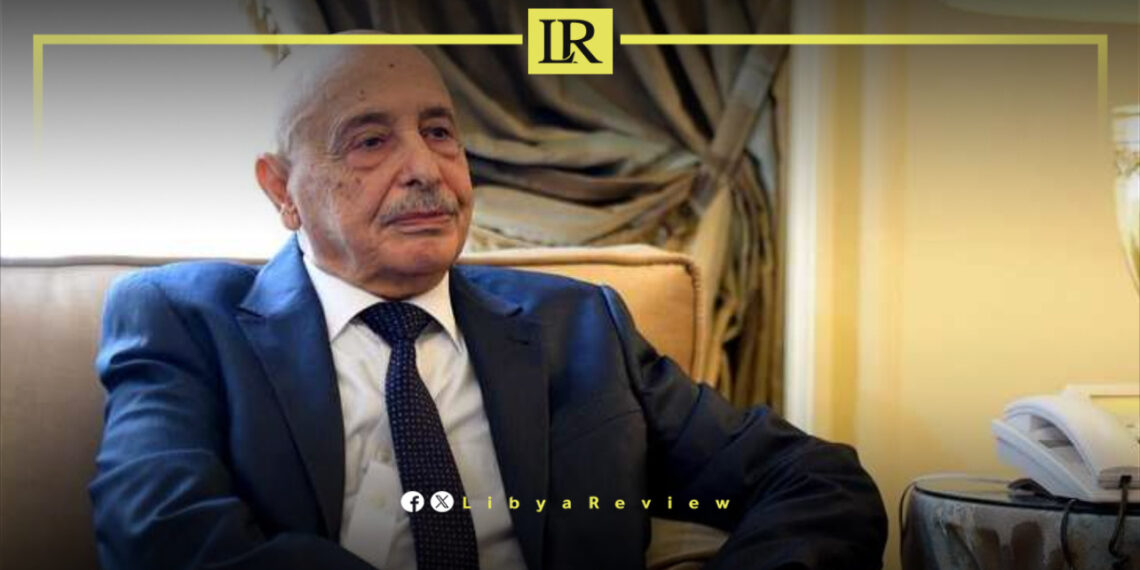On Tuesday, the Speaker of the Libyan Parliament, Ageela Saleh, rejected any dialogue with the Presidential Council over the Central Bank of Libya (CBL) crisis, stating that the matter is solely for the Parliament and the High Council of State (HCS) to resolve.
In an interview with Russian news agency Sputnik, Saleh reaffirmed that negotiations on the Central Bank and other critical issues must remain between Libya’s two legislative bodies, excluding the Presidential Council from any discussions.
Despite the rejection of talks with the Presidential Council, Saleh confirmed that he will meet HCS Chairman Khaled Al-Mishri in the coming days to address key issues, including electoral laws and appointments to Libya’s sovereign institutions. Saleh also revealed that he will visit Russia in early October, following an invitation from the Russian Duma, to discuss Libya’s ongoing crisis and strengthen diplomatic ties.
Speaking on the ongoing crisis surrounding the Central Bank of Libya, Saleh made it clear that the Parliament will not negotiate with the Presidential Council on this matter. “We will not hold talks with the Presidential Council; this issue is beyond their jurisdiction,” Saleh stated. According to him, the Parliament and HCS are the only two bodies authorized to resolve the Central Bank crisis.
Saleh proposed a temporary solution to the deadlock by appointing the deputy governor to lead the Central Bank, assisted by two experts from Libya’s southern and western regions. This interim solution would provide time for a final agreement on sovereign appointments. Saleh emphasized the need for speed, stating that candidates should be vetted by the HCS before final approval by the Parliament.
Saleh also voiced his support for Khaled Al-Mishri as the legitimate leader of the High Council of State, following internal divisions that have recently plagued the body. He dismissed the controversy surrounding the election, saying that any ballot with a distinguishing mark is invalid, and thus Al-Mishri’s election was the legitimate outcome. “We recognize Al-Mishri as the rightful head of the HCS, and we will continue to work with him,” Saleh asserted.
On the international front, Saleh confirmed that he will visit Russia in early October after receiving an invitation from the Russian Ambassador to Libya. Saleh expects to meet with members of the Russian Duma to discuss Libya’s political and economic challenges and seek broader support for a resolution to the country’s crisis.
In addition to Russia, Saleh mentioned potential diplomatic visits to France and Morocco by the end of September or early October. A trip to the United States is also on the agenda, although the date for this visit has not yet been confirmed.
Since the fall of Muammar Gaddafi in 2011, Libya has remained deeply divided between rival factions, each vying for control over the country’s institutions and resources. The Central Bank has been one of the most contested institutions, with both Eastern and Western governments seeking authority over the nation’s financial assets. The split within the Central Bank has further complicated efforts to unify the country and stabilize its economy.


